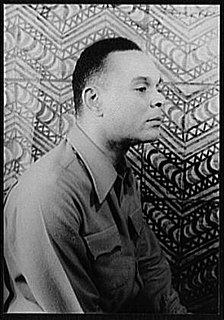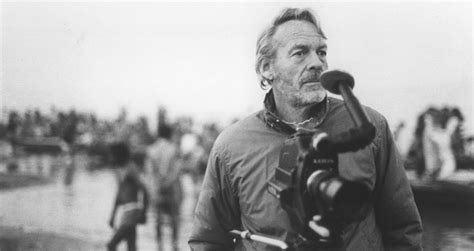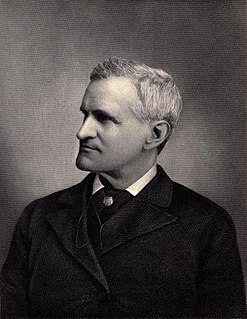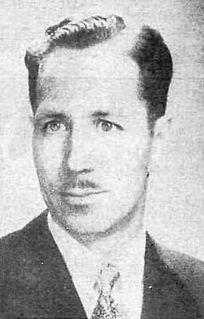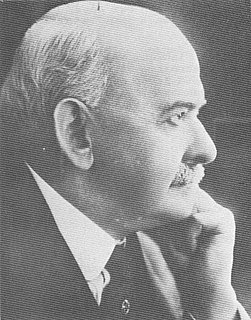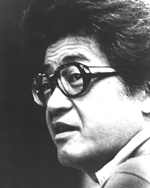A Quote by Chester Himes
It seemed so illogical to punish some poor criminal for doing something that civilization taught him how to do so he could have something that civilization taught him how to want. It seemed to him as wrong as if they had hung the gun that shot the man.
Related Quotes
How did men believe in something that preached love on one hand, yet taught destruction of unbelievers on the other? How did one rationalize belief with no proof? How could they honestly expect him to have faith in something that taught of miracles and wonders in the far past, but carefully gave excuses for why such things didn't occur in the present day?
When Clark Gable, MGM's most popular and famous leading man asked for a percentage of the profits from his films, he was flatly refused. A top executive was reported to have said, He's nobody. We took him from nobody. We lavished him with lessons and publicity and now he's the most desired man in the world. Who taught him how to walk? We straightened his teeth and capped them into that smile. We taught this dumb cluck how to depict great emotions, and now he wants a piece of the action? Never!
I kept glancing at him and away from him, as if his green eyes were hurting me. In modern parlance he was a laser beam. Deadly and delicate he seemed. His victims had always loved him. And I had always loved him, hadn't I, no matter what happened, and how strong could love grow if you had eternity to nourish it, and it took only these few moments in time to renew its momentum, its heat? -Lestat
Call saw that everyone was looking at him, the hands and cowboys and townspeople alike. The anger had drained out of him, leaving him feeling tired. He didn't remember the fight, particularly, but people were looking at him as if they were stunned. He felt he should make some explanation, though it seemed to him a simple situation. "I hate a man that talks rude," he said. "I won't tolerate it.
Man had in the beginning no power of analysis or synthesis approaching that of the spider, or even of the honey-bee; he had acute sensibility to the higher forces. Fire taught him secrets that no other animal could learn; running water probably taught him even more, especially in his first lessons of mechanics; the animals helped to educate him, trusting themselves into his hands merely for the sake of their food, and carrying his burdens or supplying his clothing; the grasses and grains were academies of study.
Have you taught a Sunday School class and felt when you finished that you had really taught someone some principle of the gospel that had really helped him or given him a brighter look on life? Remember the feeling of peace and joy that followed? Have you ever taught someone the gospel and received that feeling of joy because he had accepted what you had been teaching? The thrill of missionary work!
"If it wasn’t for the mist we could see your home across the bay," said Gatsby. "You always have a green light that burns at the end of your dock." Daisy put her arm through his abruptly but he seemed absorbed in what he had just said. Possibly it had occurred to him that the colossal significance of that light had now vanished forever. Compared to the great distance that had separated him from Daisy it had seemed very near to him, almost touching her. It had seemed as close as a star to the moon. Now it was again a green light on a dock. His count of enchanted things had diminished by one.
She poured out Swann's tea, inquired "Lemon or cream?" and, on his answering "Cream, please," said to him with a laugh: "A cloud!" And as he pronounced it excellent, "You see, I know just how you like it." This tea had indeed seemed to Swann, just as it seemed to her; something precious, and love has such a need to find some justification for itself, some guarantee of duration, in pleasures which without it would have no existence and must cease with its passing.
Christ did not come to civilize. He came to save. Civilization is not the solution; it does not destroy the works of the devil. All civilization aims at world improvement, at the gradual elimination of the curse; it is a process of evolution. It is like a man who is suffering from a terrible disease, and the physician who comes to help him gives him a salve to apply. He treats the skin symptoms but the source of the disease he never considers and never touches. Such is a boasted and progressive civilization. It is a delusion.
